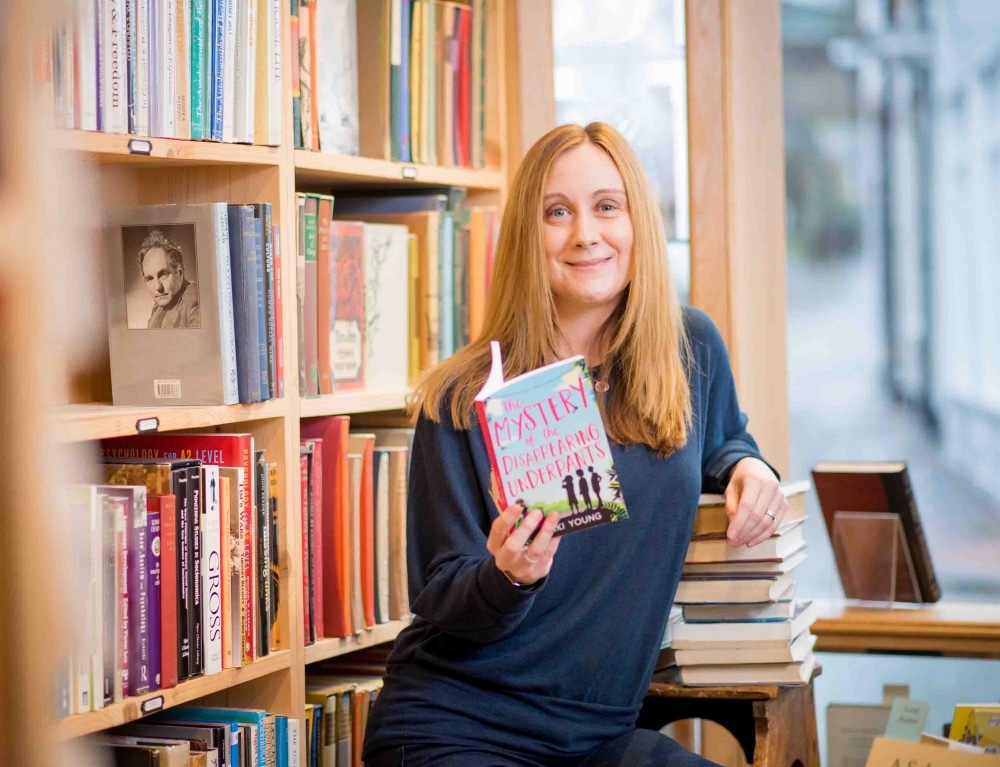Up until Covid struck I ran my Storymakers workshops in person, but pretty much like everything else my business was forced to go online in March 2020 as we entered into the first lockdown.
Transferring to Zoom was no issue for what I do and my private weekly writing groups for kids aged 7-16 continued. It wasn’t until the second lockdown that I noticed a change.
I’ll call it Zoom fatigue because it sounds better than ‘online learning fatigue’, which is essentially what it actually was.
By March this year, children were waning. I had been doing lots of one-to-one English and writing sessions as well as my groups to help children who needed it, but I was starting to see the pressures of homeschooling taking their toll.
That’s when I had a rethink about what I was going to do for my Easter workshops, and instead of the comprehension, SPAG (spelling, punctuation and grammar) and vocabulary that I usually do, I decided to try something different.
The idea was to offer a creative outlet and give the children something tangible for all their hard work; I think many were finding homeschooling a relentless chore, with very little reward.
So, I decided to run a workshop whereby the children would work with me over the course of the week to write a story that they would then receive as a published book.
Not surprisingly, parents snapped up the places. It seemed other parents were thinking the same thing and were actively looking for something like this for their children.
Following the workshops, parents told me about how excited their children were to receive the book. They felt like published authors and were so proud of themselves.
Being able to write creatively helps children become better communicators and gives them the skills to be able to express their thoughts. This is a valuable and transferable life skill.
Critical thinkers and creatives are people who can think for themselves, ask questions, solve problems and believe in themselves enough to trust their instincts and go with them. Not only that, they can communicate their ideas with others.
According to the latest National Literacy Trust research – a survey of 42,502 children and young people in the UK – writing enjoyment is at its lowest level since the survey began ten years ago.
Only 1 in 7 (15.2 per cent) children and young people said they wrote something in their spare time every day. The situation also differs between boys and girls, with 2 in 5 girls saying they enjoy writing, compared with 1 in 4 boys: particularly those from disadvantaged backgrounds.
Those who do write said that it makes them feel happy or more confident, it helps them relax, it helps them feel creative and like they can express their ideas, and because it makes them feel connected to the world.
Not surprisingly, there was an increase this year with children writing digitally. Technology is everywhere, and we can’t ignore that. Children learn by example, so it’s up to us as adults to show them that it’s possible to have that balance and perhaps use technology in a positive way to help foster creativity.
HOW TO GET YOUR CHILDREN WRITING
Make a story out of your spellings: Pick a word and write a sentence that includes it. Pick another word and write the next sentence of the story. Keep going until you have used all the words from your spellings list.
Write for a purpose – send a letter: Grandparents, friends, aunts, uncles – who doesn’t love to receive a letter? The best thing about letter writing is receiving a reply in the post. Much more exciting than bills!
Make a story box: Collect random objects and put them in a box. Pick out three of four items and write down notes about them, starting your thinking process with ‘what if?’ Can you connect all the objects for a story?
Make a map: Create a map of a treasure island and write an adventure story.
Characters: Find an image of a character you find interesting. Who are they? Where do they live? What could be their story?
ABOUT STORYMAKERS…
Storymakers has been running since 2017, offering weekly groups, holiday workshops and 1:1 English and writing sessions for £10 per child, per hour. The next book-writing workshop will be during the October half term. Summer workshops include creative writing, comprehension, vocabulary and SPAG, and are held Monday to Thursday mornings, 8.30-9.30am (on Zoom) during July and August.
Find out more at storymakersclub.com
Photo: Craig Matthews








